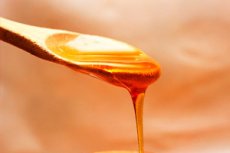New publications
Top 5 natural remedies to moisturize your skin
Last reviewed: 01.07.2025

All iLive content is medically reviewed or fact checked to ensure as much factual accuracy as possible.
We have strict sourcing guidelines and only link to reputable media sites, academic research institutions and, whenever possible, medically peer reviewed studies. Note that the numbers in parentheses ([1], [2], etc.) are clickable links to these studies.
If you feel that any of our content is inaccurate, out-of-date, or otherwise questionable, please select it and press Ctrl + Enter.

Spa treatments are a good thing, but not always affordable. But what to do if your skin needs moisturizing, especially when it's winter and the holidays are coming. There is a way out! Ilive will tell you how to moisturize your skin at home. Firstly, the benefits of home treatments are obvious, because only natural products are used, without chemical components, and secondly, you can save money on this.
Buttermilk
Buttermilk is a by-product that is formed during the separation of sour cream or cream. Buttermilk retains all the beneficial properties of dairy products. Due to the lactic acid content, buttermilk perfectly removes impurities, exfoliates dead cells and refreshes the skin. Therefore, buttermilk is good as a useful lotion, natural and effective. If you want to take milk baths, please, it will only benefit your skin. Cleopatra experienced the effectiveness of this procedure. In addition, buttermilk contains a large amount of lecithin, which protects the skin from dryness, and in winter this is a very pressing problem, causing headaches for many ladies.
Shea butter
Shea butter has been used as a moisturizer since ancient times. Shea butter is rich in vitamin A, which has the same effect as the natural fats found in the upper layers of the skin. Vitamins not only help soften and moisturize dry skin, but are also used to relieve eczema, dermatitis, sunburn, and insect bites. Shea butter also contains a high level of vitamin F, which contains fatty acids that stimulate cell growth and keep the skin young. When buying shea butter, it is important to pay attention to its shelf life. It should be no more than 18 months. The “older” the product, the fewer beneficial properties it has.
Olive oil
Olive oil can do wonders both inside and out. The ancient Greeks used olive oil as a moisturizer and bathed in it. This oil contains compounds known as linoleic acid. It creates a lipid barrier that protects the skin from moisture loss. Linoleic acid is not produced by the body, but comes from food.
Avocado
Avocado oil acts as an emollient and helps lubricate the spaces between the clusters of cells called corneocytes that form the top layer of skin. Avocados are also rich in fats and vitamins D, A, and E, which help prevent wrinkles by retaining moisture. If you don’t have avocado oil but do have fresh avocado, simply make one and apply it to your skin for 15 minutes before rinsing.
Honey
Honey is a natural humectant that has many beneficial properties. It is able to attract water molecules directly from the air to the skin, which helps to retain moisture for a long time. In addition, honey has anti-inflammatory, antiseptic and antibacterial properties.
